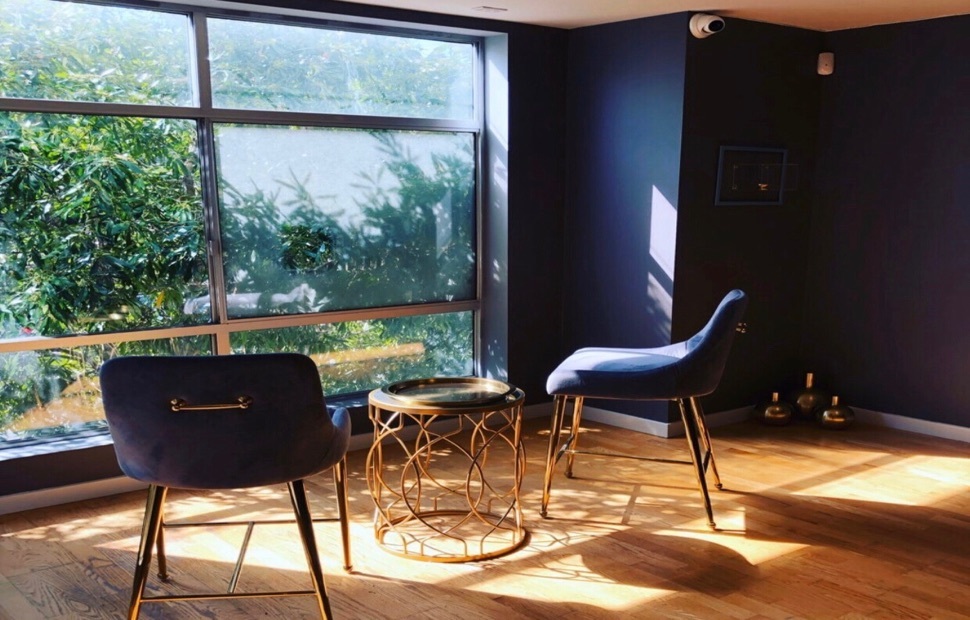It’s hard to tell when you’re in the thick of it, but sometimes, a bad breakup can lead to great things. That’s one takeaway from the upcoming grand opening of the “Posh Green,” San Francisco’s first dispensary to be owned and operated by an African-American woman.
In an interview with Hoodline.com earlier this month, Posh Green owner and founder Reese Benton described a breakup with her ex, after which “he banned me from his dispensary. I went to other places, but was either disappointed in the customer service or found it hard to select what I wanted. So I decided to open a store, find the best products possible, and provide an excellent service to the community.”
• Get your Medical Marijuana Card Without Ever Leaving the House
• What It’s Like Buying Weed in the World’s Biggest Cannabis Dispensary
• If You’re Black and Like Weed You’re Still Screwed, Even Where It’s Legal
Now, a few years, some legal hassles, and A LOT of money later, Benton is set to open her own cannabis storefront in the city’s Bayview neighborhood at the end of the month.
“I built Posh Green from the ground up and like Cardi B said, ‘I slaved for this, had to drop down to God I prayed for this,” Benton said.
Benton, a stylist by trade, was already well-known to weed heads and lovers of primo cannabis in the Bay Area as the founder and owner of “Posh Green Delivery,” a boutique cannabis delivery service. She became the first woman of color in San Francisco to own a licensed cannabis business when the delivery service opened in 2017.
Benton’s story is also one of a child of the drug war, born and bred in a community that was ravaged by the American criminal justice system, who is today carving out her own path in the legal weed industry.
In an interview from 2018, Benton said “I have an intimate history with the war on drugs – having lost my parents to it.”
Benton grew up in the Ingleside neighborhood of the city, near San Francisco State University and City College. She grew up in the city during the 1980s, at the height of the crack cocaine epidemic.
As she put it in an interview from February “in the 80s, my dad was a kingpin.”
“He was a businessman. He was just in the wrong business. If he was in any other business, he would’ve been successful. It was just the cards that he was dealt.”
She also said that her mom and grandparents got into drugs as well “so my grandfather, my grandmother, and my mom and my immediate family were all wiped out from the war on drugs.”
The article also mentions how Benton was able to use assistance from The San Francisco Office Of Cannabis’ Equity Program to transition from a cannabis delivery service to a full-service dispensary.

Inside the Posh Green Dispensary. (Photo: Courtesy of Reese Benton)
The program is “designed to lower barriers to cannabis licensing for those hardest hit by the War on Drugs.”
Those who qualify are exempt from the $5,000 dispensary permit fee and can benefit from an incubator partnership that provides rent-free space for three years as well as technical assistance to run their business.
In order to qualify for the equity program, an applicant must meet three of the following six conditions:
- Have a household income below 80% of the median income in San Francisco
- Have been arrested for or convicted on a cannabis charge between 1971 and 2016.
- Have a parent, sibling, or child arrested or convicted for a cannabis charge between 1971 to 2016.
- Lost housing in San Francisco after 1995 through eviction, foreclosure, or subsidy cancellation.
- Attended school in the San Francisco Unified School District for a total of five years between 191 and 2016.
- Have lived in areas of San Francisco for a total of five years between 1971 to 2016, in which 17% of the households had incomes at or below the federal poverty level.
Benton was also a recipient of a $50,000 “momentum” grant from cannabis marketplace Eaze. The grants are meant “to cultivate the growth and success of underrepresented cannabis business founders.”
Minorities have long been disproportionately targeted by police for drug violations, and now, in states with legal recreational marijuana programs, they are heavily underrepresented among the ranks of cannabis business owners and operators.
According to the American Civil Liberties Union, a black person is 3.73 times more likely to be arrested for marijuana possession than a white person. At the same time, according to a 2017 survey, only 17% of cannabis executives were minorities, and a BuzzFeed analysis from 2016 estimated that only 1% of more than 3,000 marijuana storefronts in the United States had black owners.
Benton has said that part of her motivation for launching her company was “to create a brand that would end 420 shame, while offering premium products to consumers.”
“Consider us the Nordstrom of dispensaries,” Benton told Hoodline, even though Nordstrom doesn’t offer top-shelf flower, pre-rolls, edibles, concentrates, topicals, and more cannabis goodies, unless your dealer meets you in the parking lot of Nordstrom Rack and that technically doesn’t count.
Nordstrom or not, Benton has already accomplished a lot in the world of legal cannabis and has some words of encouragement for women like herself who are looking for their come up.
“As African-American women, we are told not to be competitive in the business world, and that’s why some of us aren’t successful. We are trained to be oppressed. I believe it’s important to be aware that there will be obstacles, but we should never feel like we aren’t good enough.”

Leave a Reply